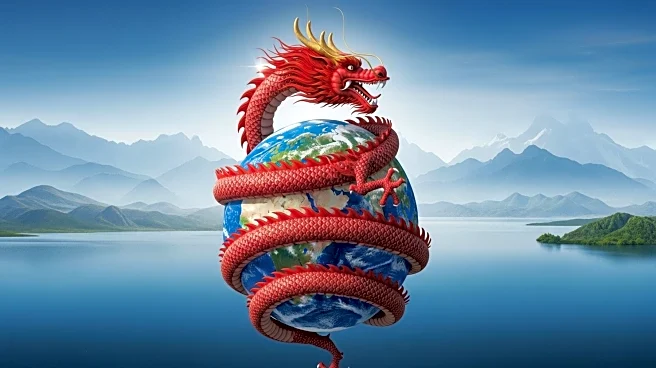What's Happening?
During the Shanghai Cooperation Organization (SCO) summit in Tianjin, President Xi Jinping called for the organization to play a larger role in maintaining regional peace and stability. Xi emphasized China's position as a stable power and champion of the developing world, highlighting the SCO's importance in fostering new international relations. The summit provides China an opportunity to strengthen ties with the Global South and reshape the international order, especially as the U.S. under President Trump appears to be retreating from global leadership roles.
Why It's Important?
Xi's remarks underscore China's strategic ambitions to lead the developing world and influence global governance. The SCO's role in promoting peace and stability is crucial amid rising geopolitical tensions and economic uncertainties. As the U.S. navigates trade wars and shifts in foreign policy, China's efforts to rally support through the SCO could alter power dynamics and impact international relations. The summit's focus on cooperation and development may also affect global economic trends and security alliances.
What's Next?
The SCO summit may result in initiatives that bolster regional cooperation and address security challenges. China's leadership in the organization could lead to increased collaboration with developing nations, potentially reshaping global trade and diplomatic relations. Observers will be watching for any strategic shifts or new partnerships that emerge from the summit, as these could influence future geopolitical alignments and economic policies.
Beyond the Headlines
China's positioning as a stable global power through the SCO reflects broader efforts to redefine international norms and leadership roles. The summit's proceedings may highlight ethical and cultural dimensions of regional cooperation, as member states navigate complex geopolitical landscapes. The SCO's emphasis on mutual development and respect for diverse civilizations could challenge existing global frameworks and promote alternative models of governance.











